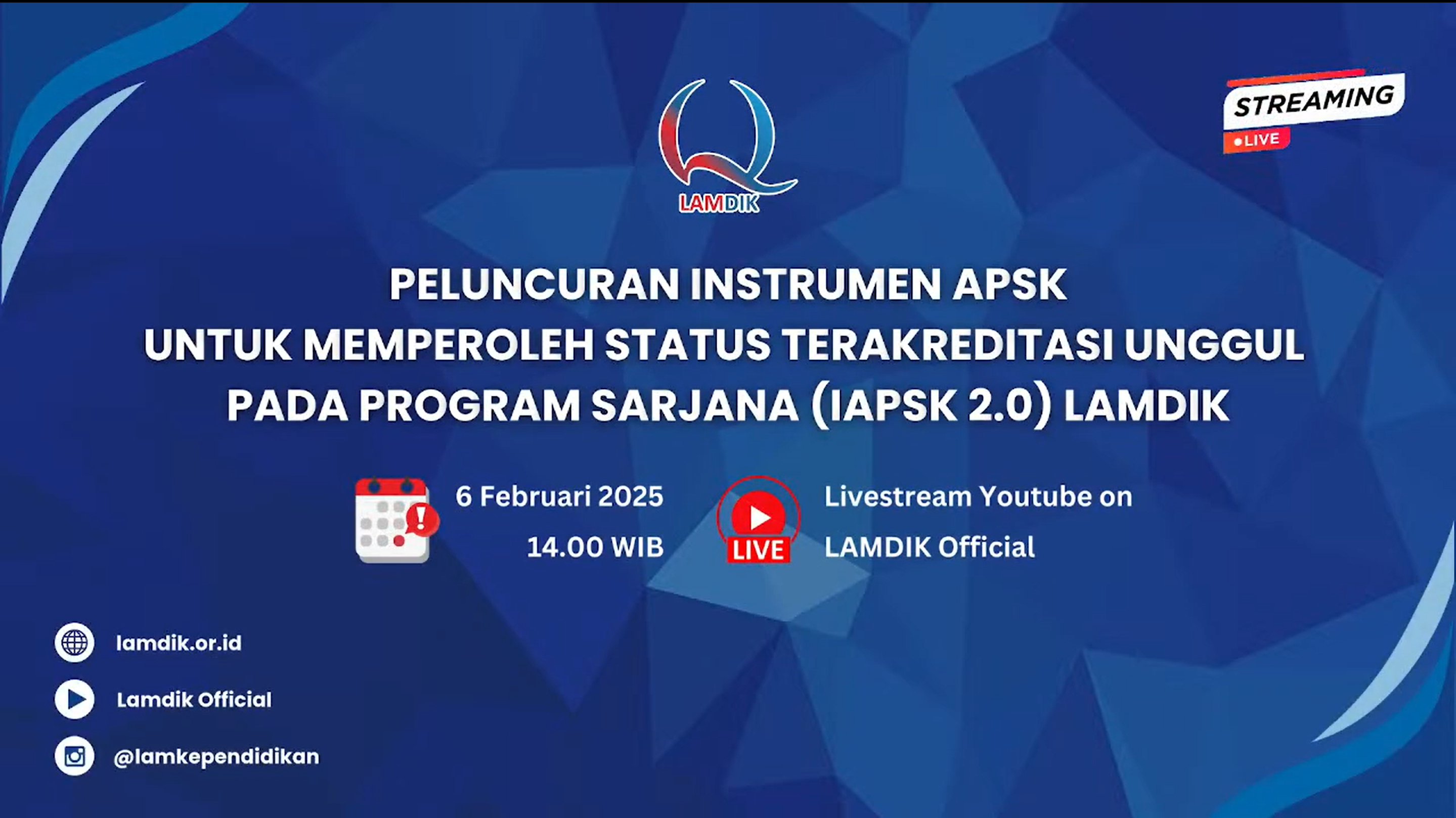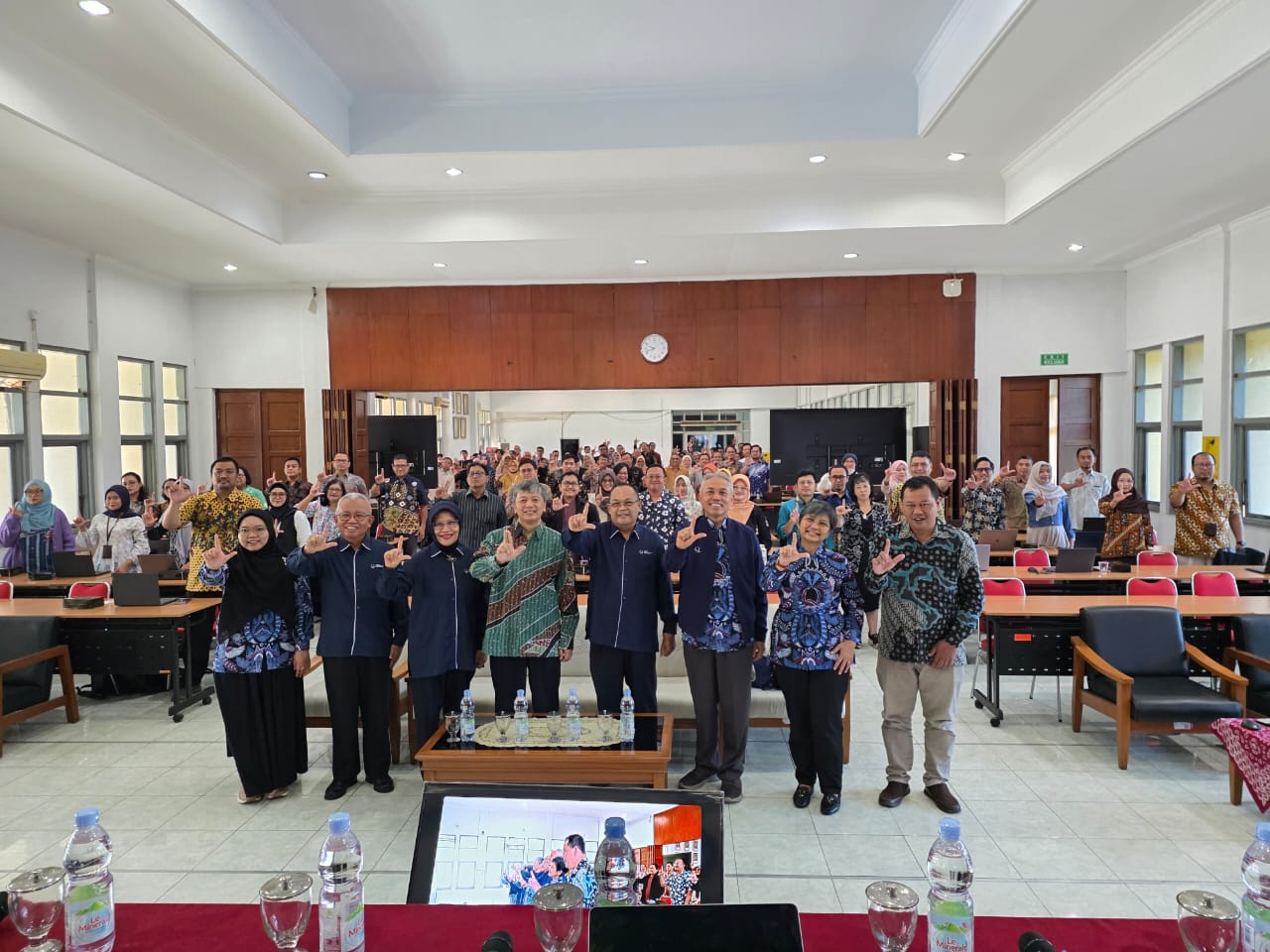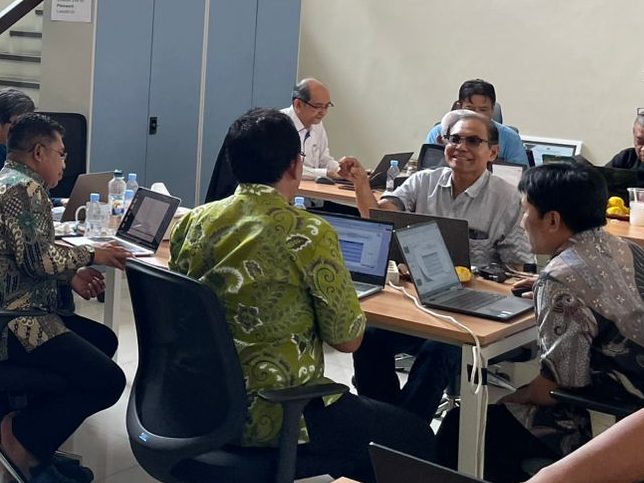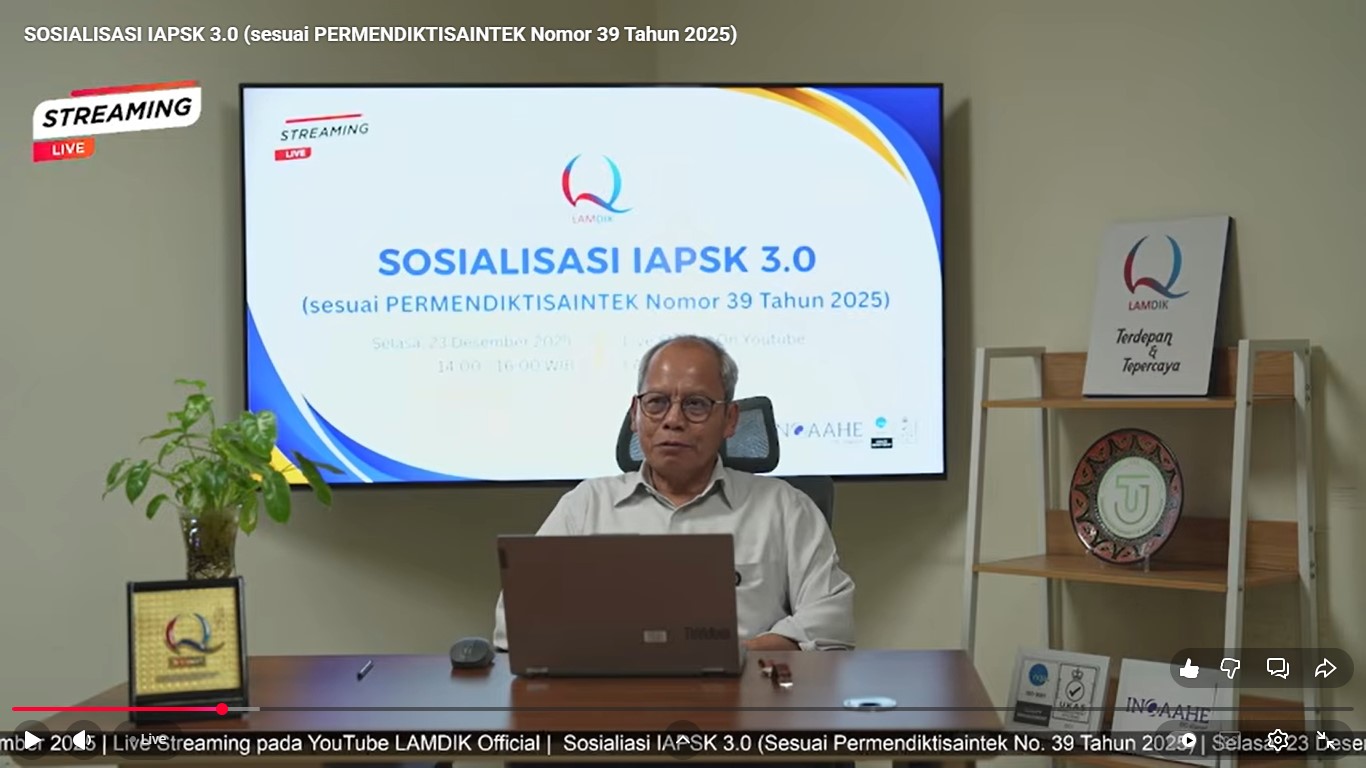
LAMDIK Officially Launches Study Program Accreditation Instrument 2.0 with Director General of Higher Education and National Accreditation Board for Higher Education
Surabaya, 07 February 2025

LAMDIK / ACE (Education Self-Accreditation Institute / Accreditation Council for Education) as a quality assurance institution for higher education education study programs is constantly improving in design, planning, implementation, development, and follow-up to respond to the demands of global higher education quality. One form of LAMDIK’s response is the launch of the Study Program Accreditation Instrument (IAPS) generation 2.0. This instrument is designed for UNGGUL educational programs, both full UNGGUL status valid for 5 years and UNGGUL status which is only valid for 3 years. The instrument, which has been designed by involving various experts and users and has gone through various stages of trials in various regions, is expected to be able to capture the characteristics as well as the advantages of each educational study program. The number of elements in Instrument 2.0 is less in quantity than the previous instrument 1.0, but in substance it is more comprehensive. Thus the report of the Chairperson of LAMDIK as delivered by Prof. Muchlas Samani at the launch of IAPS 2.0.
The Study Program Accreditation Instrument 2.0 which has been officially launched has been outlined in Per LAMDIK No. 1 Year 2025. The launch was very well attended by the Ministry of Higher Education Science Technology and MA BANPT and enthusiastically followed by the Heads of Higher Education Institutions, Supporting Associations, Users, UPPS, PS, and the wider community. The event was also attended by various stakeholders in higher education, including representatives of universities, academics, and other related parties. The launch was held in a hybrid manner, in the Surabaya office, Jakarta office, and some others followed online. More than 3,000 participants attended the launch event, representing the number of universities that have 1,700 LPTKs. This means that each PT organizing LPTK almost participated in all of them or almost all PT LPTKs sent their delegates to participate in the launch event with an average of 2 participants.
The event began with remarks from the Chairman, Prof. Muchlas Samani, who emphasized the importance of improving accreditation standards to support the quality of Education Study Programs in Higher Education in Indonesia. In his remarks, the Chairman of LAMDIK said that the LAMDIK accreditation instrument had undergone several trials before launching in the period from mid-2024 to January 2025.

Furthermore, the Head of Institutional Sub Directorate representing the Director General of Higher Education, Ministry of Higher Education, Science and Technology, Mr. Deny Kurniawan, PhD, delivered a speech highlighting the strategic role of accreditation in creating a more competitive higher education system. He emphasized that this latest instrument is expected to be able to provide an assessment that is more objective and in accordance with the times.

The highlight of the event was marked by remarks from the Chairman of the BAN-PT Accreditation Panel, Prof. Imam Buchori, who also officially launched the Study Program Accreditation Instrument 2.0. In his remarks, Prof. Imam Buchori emphasized that this instrument was designed to be more responsive to the dynamics of higher education and encourage innovation in the learning process.

As part of the agenda, Prof. Joko Nurkamto gave an in-depth explanation of the LAM Education Study Program Accreditation Instrument 2.0. He explained the various technical aspects and methodologies used in this instrument, and how its application will provide a more comprehensive and adaptive standard of assessment to academic and professional needs.

With the launch of this new instrument, it is hoped that higher education institutions can be more optimal in improving their academic quality, so that they can produce graduates who are superior and highly competitive, both at the national and international levels.
Material Shown:




